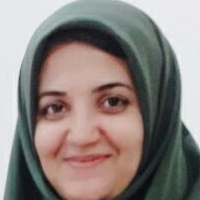The analysis of the components of Identification in the theory of human as agent
The purpose of the present study is to analyze the components of Identification in the theory of "human as agent". This study was conducted with qualitative approach and analytical-inferential method. This theory in anthropology has described the image of man in the Qur'an as a hard core. According to this theory, one's actions make him or her an identity. Each individual creates a definite identity in his or her own being in accordance with his / her actions and interaction with the environment. Considering the philosophical effort of human theory as a factor in explaining the human nature and deducing the principles of action from the verses of the Qur'an, we have investigated the components of identity in this theory. In this analysis, four components of self-awareness, value, unity and authority were extracted from the bases of cognition, desire, and action. From the self-awareness component, two indices of “self-presentation and description of feelings, emotions, desires, needs and abilities” and “self-evaluation” were deduced. The valuable component realizes the value of identity through 'other evaluation' and one's perception of 'similarity and difference with others'. Given one's exposure to the multiplicity of situations in life, "prioritizing" causes inner unity and cohesion. On the other hand, individual-social identity is formed in the process of "participation in collective activity" as an indicator of the component of unity. In addition to these three components, identity authority emerges with "choice and decision" and with regard to "effect and outcome of action."
-
The effect of television school programs on students' academic performance during the Corona period with the mediation of academic motivation
M Hajitabar *, , M Kh
Journal of Technology and Scholarship in Education, -
Content Analysis of Elementary Schools Textbooks based on Components of Identification (Case Study: Persian and Social Studies Book)
Fatemeh Rahbari, Hakimeh Sadat Sharifzadeh *, Meymanat Abedini Baltork
Journal of Social Sciences, -
The role of television school program on the qualitative academic performance of sixth grade students with the mediation of academic engagement
M. Hajitabar Firouzjaee *, M. Abedini, M. Khatiri
Journal of Technology of Instruction and Learning, -
Identify Components of Cultural Education and Its Relationship with Collective Communication Media (With an Emphasis on Virtual Space )
Mehran Karimi Firoozjaei, Hakimehalsadat Sharifzadeh *, Zeynab Karamkhani
Education Journal,



